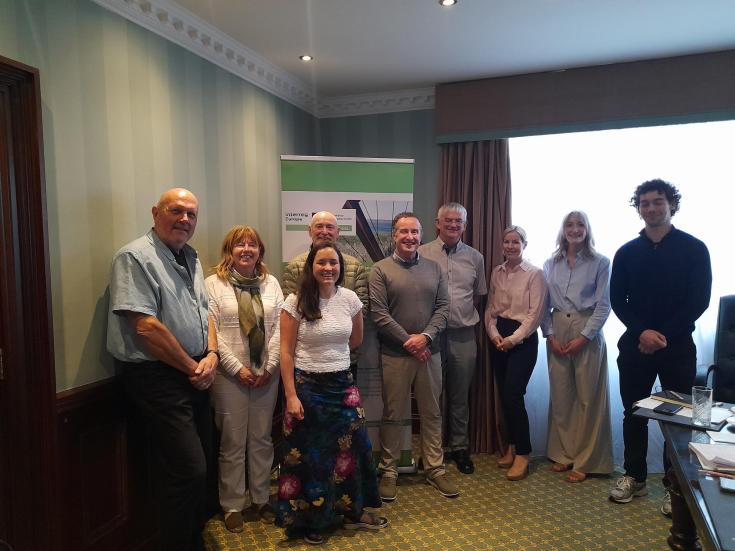The need for Sufficiency in future Policy Development
European resources are in finite supply. With instability due to violence, increasing temperatures and emigration, global demand for resources has increased substantially impacting financial savings, product availability, biodiversity, social equality and justice. Additionally, the amount of waste being generated are increasing, ramping up disposal costs of resources which could instead, be circulated and reused.
A sufficiency concept incorporated into policies informs and supports actions which ensures resources can be kept in circulation. This in return reduces impacts on the environment, financial burden on citizens and the costs of importing materials from foreign shores. By integrating sufficiency into business models, value is added to products and services through preservation of resources which would otherwise be wasted. Incorporating a sufficiency concept would mean that use of resources is better managed without impacting citizens lives and ensuring accessibility for all.
Current European efforts to limit global warming will not be enough to achieve our 2050 goals. Adopting a sufficiency concept into policy instruments provides structure and legal support for eco-conscious practices that support social structure and improve citizen health and wellbeing. Sufficiency is the glaring strategy missing from European policies which currently focus more on energy efficiency and technological solutions which are resource heavy.
Cork City Council’s Climate Action Plan was published in March 2024. Public consultations held in preparation of the plan identified an awareness of climate change, with 80% of citizens believing it is already happening in Ireland. By amending the Climate Action Plan to include actions demonstrating sufficiency, Cork City Council can set the standard for others to follow across Ireland and Europe.
Internally, Cork City Council are becoming a sustainable organisation with ISO Energy and Quality Management Systems implemented. Low-tech actions introduced include composting activities to reduce food waste, thus reducing methane emissions, the clothes swap held last Christmas offered an alternative to new fashions, instead, adding life to unwanted items. Cork City council has implemented these activities but an addition of sufficiency into the policy would support the concept further, contributing to local and national targets and extending the concept externally to benefit citizens.
Externally, an organic farm is developing within the city boundary reducing food miles and offering a low carbon alternative. Cork Food Hub is supported by the Cork Food Policy Group. The Right to Repair Directive supports citizens choices to fix products, allowing a cheaper option and supporting the local repair shops movement and the circular economy. The Kinship Project in Tramore Valley Park highlights the connections between the natural environment and our building sector. Promoting and facilitating actions that support the sufficiency concept in Cork can empower and increase the effects which these practices can have on resource availability.
Cork City Council is partnered with 7 European cities on an Interreg Europe Project called Frugal Cities which aims to counteract the demand on resources by undertaking the sufficiency concept in Cork. The project is funded by the European Regional Development Fund. The sufficiency concept can be applied across multiple sectors to reduce demand. The project develops learning through interegional capacity building with partners.
